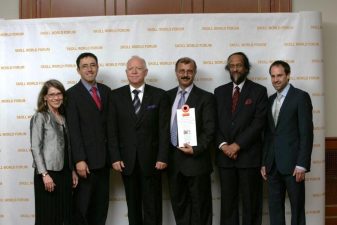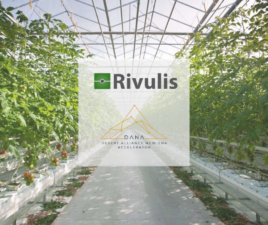Reclaimed or grey water is touted as a great means to save and reuse water where water resources are thin.
A new study from the Hebrew University in Jerusalem makes us want to think twice about saving precious water: researchers studied the vegetables grown in reclaimed water and found traces of human pharmaceuticals used for treating epilepsy. We’ve written in the past about drugs (like codeine and cocaine) in your drinking water, now researchers have gone to look for them in your food.
The new study looked at vegetables and fruits grown in soils irrigated with reclaimed wastewater and shows that this method exposes consumers to minute quantities of carbamazepine, an anti-epileptic drug commonly detected in wastewater effluents.
Fresh water scarcity worldwide has led to increased use of reclaimed wastewater, as an alternative source for crop irrigation. But the ubiquity of pharmaceuticals in treated effluents has raised concerns over the potential exposure for consumers to drug contaminants via treated wastewater.
The study is the first to directly address exposure to such pharmaceutical contaminants in healthy humans. It was recently published in Environmental Science and Technology.
“Israel is a pioneer and world leader in reuse of reclaimed wastewater in the agriculture sector, providing an excellent platform to conduct such a unique study,” said research co-author Prof. Benny Chefetz from the Hebrew University.
It is also a country where its people might be most at risk from over-exposure of other peoples’ pharmaceuticals especially as the contaminants compound over time.
In the study, a a randomised controlled trial, the researchers demonstrated that healthy individuals consuming reclaimed wastewater-irrigated produce excreted carbamazepine and its metabolites in their urine, while subjects consuming fresh water-irrigated produce excreted undetectable or significantly lower levels of carbamazepine.
The study followed 34 men and women divided into two groups. The first group was given reclaimed wastewater-irrigated produce for the first week, and freshwater-irrigated vegetables in the following week. The second group consumed the produce in reverse order.
The volunteers consumed the produce, which included tomatoes, cucumbers, peppers and lettuce, according to their normal diet and drank bottled water throughout the study to neutralize water contamination.
The researchers measured carbamazepine levels in the fresh produce and in the participants’ urine. To begin with, the urinary levels of carbamazepine differed in their quantifiable concentration, with some participants having undetectable levels. Following seven days of consuming reclaimed water-irrigated produce, all members of the first group exhibited quantifiable levels of carbamazepine, while in the second group the distribution remained unchanged from baseline.
Levels of carbamazepine excretion were markedly higher in the first group versus the second.
“Treated wastewater-irrigated produce exhibited substantially higher carbamazepine levels than fresh water-irrigated produce,” said Prof. Paltiel.
“It is evident that those who consume produce grown in soil irrigated with treated wastewater increase their exposure to the drug. Though the levels detected were much lower than in patients who consume the drug, it is important to assess the exposure in commercially available produce,” Prof. Paltiel said.
“This study demonstrates ‘proof of concept’ that human exposure to pharmaceuticals occurs through ingestion of commercially available produce irrigated with treated wastewater, providing data which could guide policy and risk assessments,” said Prof. Chefetz.




